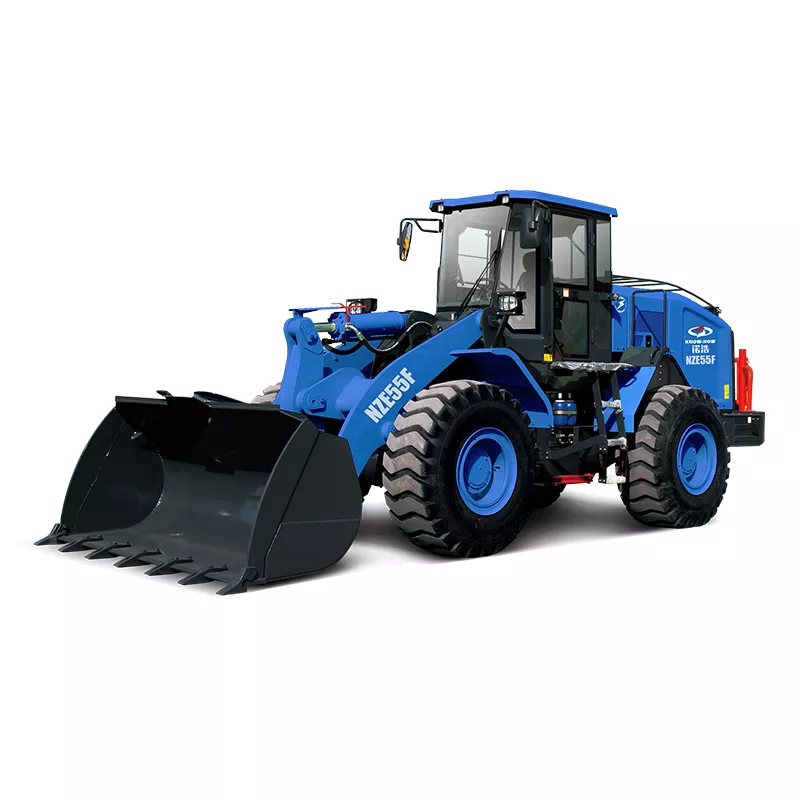Electric Wheel Loader: Revolutionizing the Construction Industry
Apr. 01, 2024
In the realm of heavy machinery, electric wheel loaders are making waves, transforming the landscape of construction, mining, and logistics. Their efficiency, versatility, and eco-friendly nature have positioned them as indispensable assets in various industries. Let's delve deeper into the world of electric wheel loaders and explore their myriad benefits and applications.

Definition and Function
Electric wheel loaders, also known as electrically powered front-end loaders, are robust machines designed to handle heavy loads with ease. They feature an electric motor instead of a traditional diesel engine, resulting in quieter operation and reduced emissions.
Advantages over Conventional Loaders
One of the primary advantages of electric wheel loader is their environmental friendliness. By eliminating diesel emissions, they contribute to cleaner air and a healthier work environment. Additionally, their electric motors offer instantaneous torque, enhancing efficiency and productivity on job sites.
Types of Electric Wheel Loaders
Small Electric Wheel Loaders
Small electric wheel loaders are nimble and maneuverable, making them ideal for indoor construction projects and urban environments where space is limited.
Medium Electric Wheel Loaders
Medium electric wheel loaders strike a balance between power and agility, making them versatile assets for a wide range of applications, from road construction to landscaping.
Large Electric Wheel Loaders
Large electric wheel loaders boast impressive lifting capacities and are well-suited for heavy-duty tasks such as mining operations and bulk material handling.
Components of Electric Wheel Loaders
Electric loaders comprise several key components, including electric motors, battery packs, hydraulic systems, and advanced control systems. These components work in tandem to deliver optimal performance and efficiency.
Applications of Electric Wheel Loaders
Construction Sites
Electric wheel loaders excel in construction settings, where they are utilized for tasks such as loading and transporting materials, excavating, and site cleanup.
Mining Operations
In the mining industry, electric wheel loaders play a crucial role in moving earth and ore efficiently while minimizing environmental impact.
Warehousing and Logistics
With their compact size and precise maneuverability, electric wheel loaders are indispensable in warehouses and logistics centers for loading and unloading cargo.
Advancements in Electric Wheel Loader Technology
Autonomous Features
Modern electric wheel loaders are equipped with advanced autonomous features, such as collision avoidance systems and remote operation capabilities, enhancing safety and efficiency on job sites.
Energy Efficiency
Electric wheel loaders are highly energy-efficient, thanks to regenerative braking systems and intelligent power management algorithms that optimize energy usage.
Telematics
Telematics technology allows operators to monitor and analyze various aspects of electric wheel loader performance in real-time, enabling proactive maintenance and maximizing uptime.
Environmental Benefits
Reduced Emissions
By eliminating diesel emissions, electric wheel loaders contribute to cleaner air and a healthier work environment for operators and bystanders alike.
Noise Reduction
Compared to their diesel counterparts, electric wheel loaders operate much quieter, reducing noise pollution in urban areas and sensitive environments.
Maintenance and Servicing Tips
Battery Maintenance
Proper battery maintenance is essential for ensuring the longevity and performance of electric wheel loaders. Regular inspections and charging protocols help prevent premature battery degradation.
Motor and Hydraulic System Checks
Routine inspections of electric motors and hydraulic systems are critical for detecting potential issues early and preventing costly downtime.
Software Updates
Keeping the software of electric wheel loaders up-to-date is crucial for ensuring optimal performance and compatibility with new features and technologies.
Cost Analysis
Initial Investment vs. Long-term Savings
While electric wheel loaders may have a higher initial investment cost compared to diesel models, their lower operating costs and reduced maintenance requirements result in significant long-term savings.
Total Cost of Ownership
When factoring in fuel savings, maintenance costs, and potential incentives for adopting eco-friendly equipment, the total cost of ownership of electric wheel loaders often proves to be more economical than traditional diesel models.
Comparing Electric and Diesel Wheel Loaders
Operational Costs
Electric wheel loaders typically have lower operational costs due to their higher energy efficiency and reduced maintenance requirements compared to diesel counterparts.
Environmental Impact
In terms of environmental impact, electric wheel loaders outshine diesel models by emitting zero tailpipe emissions and reducing reliance on fossil fuels.
Future Trends
Integration with Renewable Energy Sources
As renewable energy sources continue to gain traction, electric wheel loaders are poised to integrate seamlessly with solar and wind power systems, further reducing their carbon footprint.
Enhanced Connectivity
The future of electric wheel loaders lies in enhanced connectivity, with the ability to remotely monitor and control machines, optimize fleet management, and leverage data analytics for predictive maintenance.
Safety Measures
Operator Training
Proper operator training is essential for ensuring the safe and efficient operation of electric wheel loaders, minimizing the risk of accidents and injuries on job sites.
Built-in Safety Features
Modern Heavy-Duty Loaders are equipped with a range of built-in safety features, including proximity sensors, backup cameras, and automatic shut-off systems, to protect both operators and bystanders.
Conclusion
Electric wheel loaders represent the future of heavy machinery, offering unparalleled performance, efficiency, and environmental sustainability. With their advanced technology and versatile applications, they continue to revolutionize industries worldwide.
102
0
0

Comments
All Comments (0)